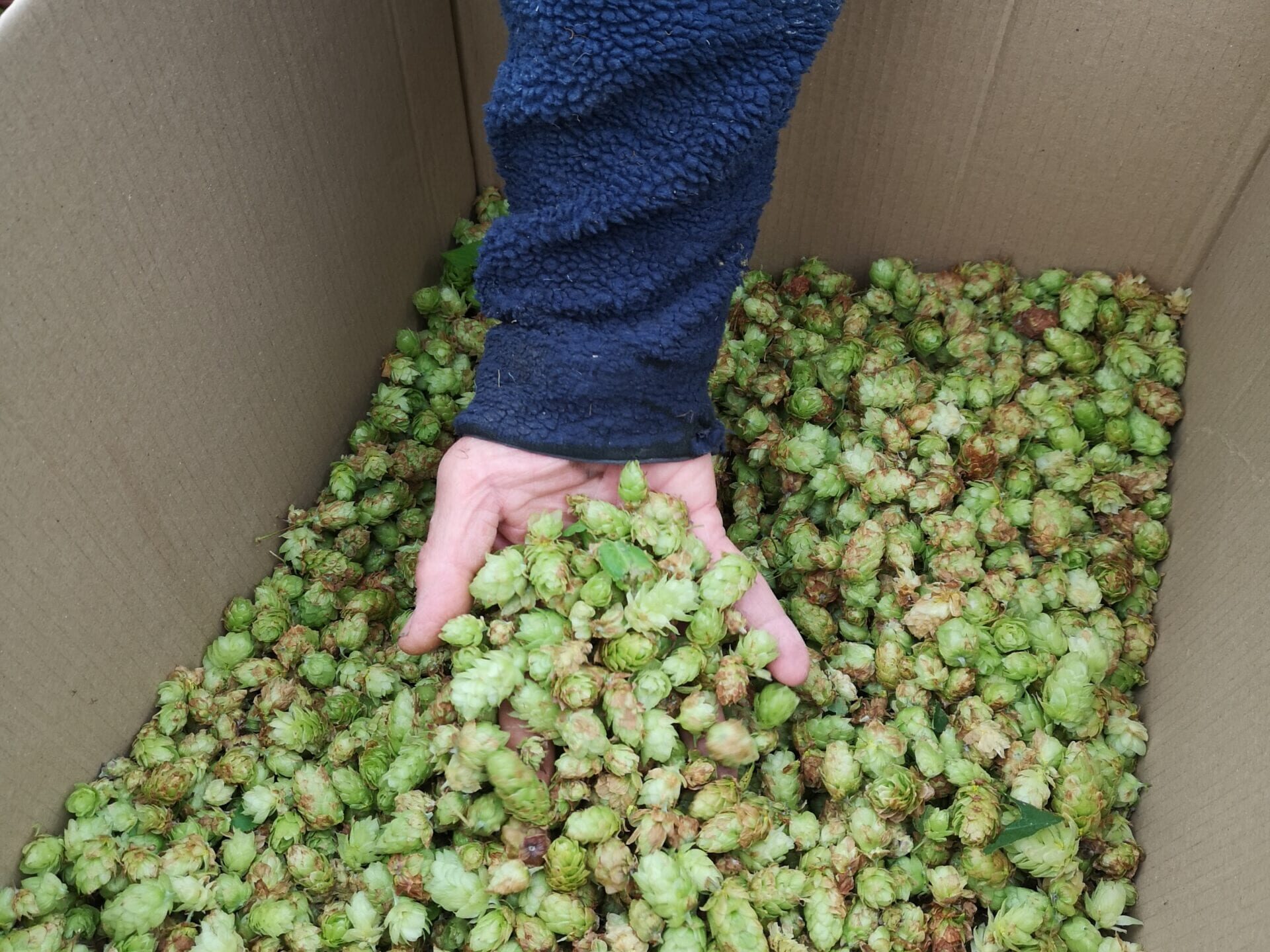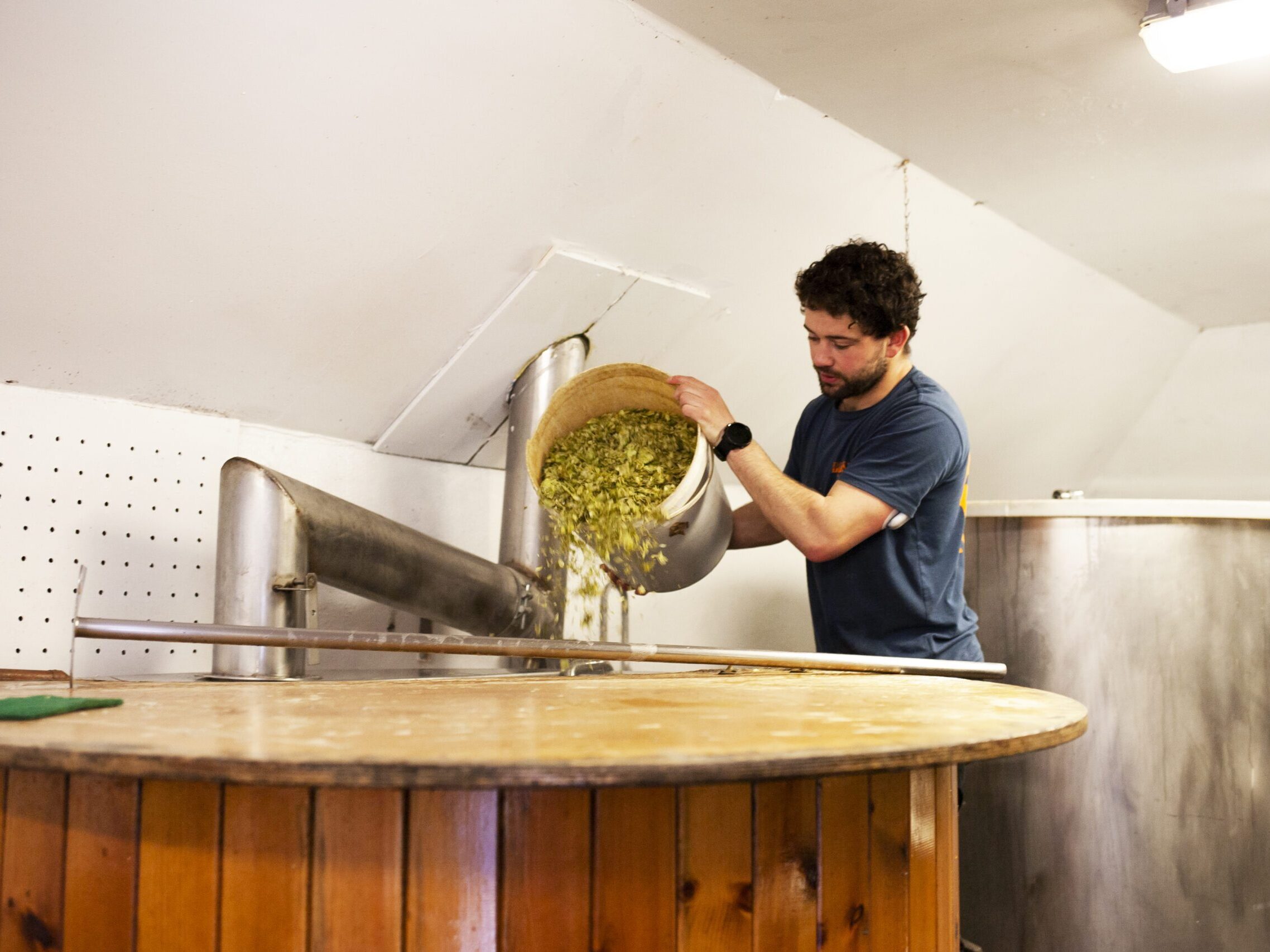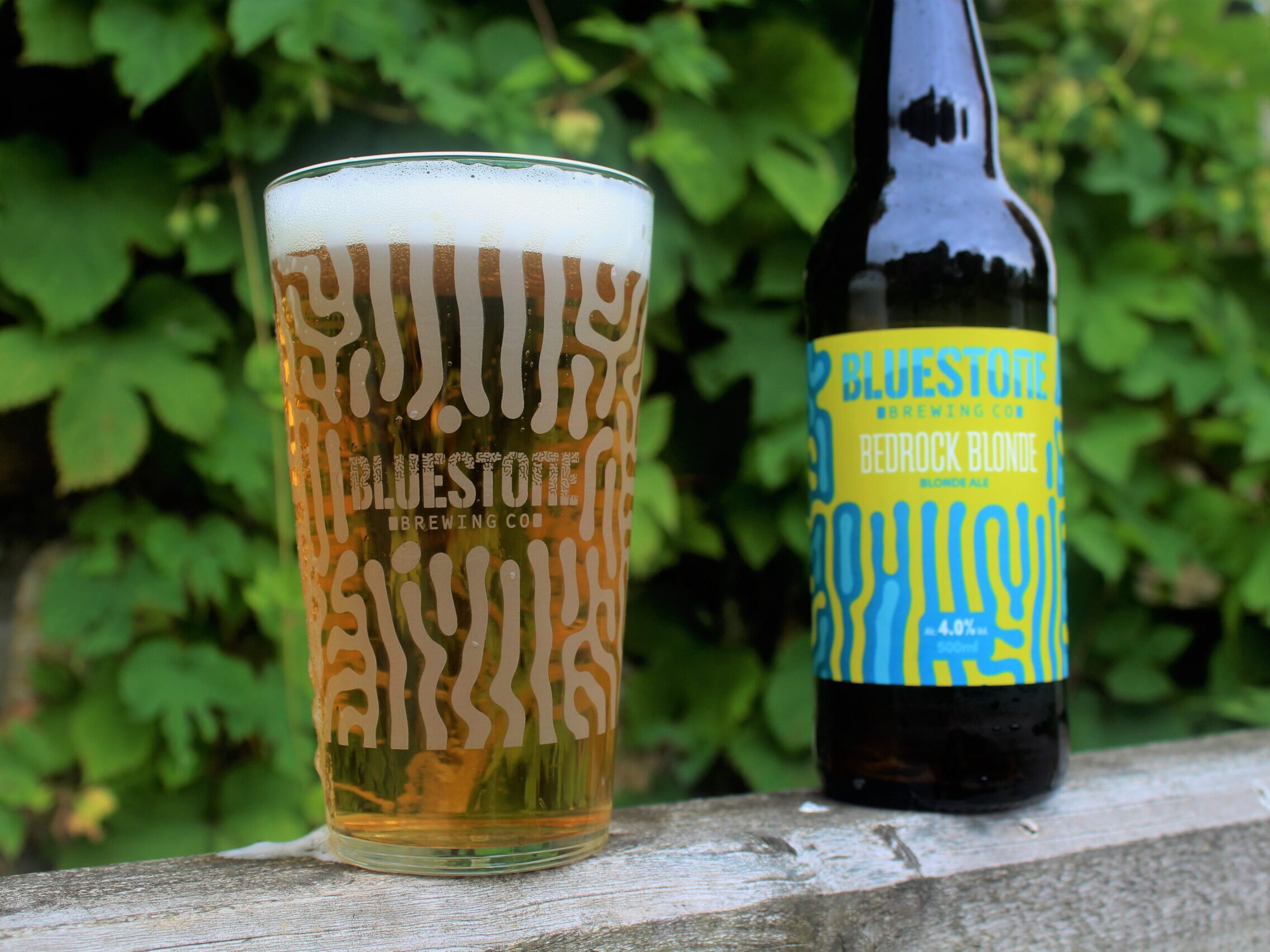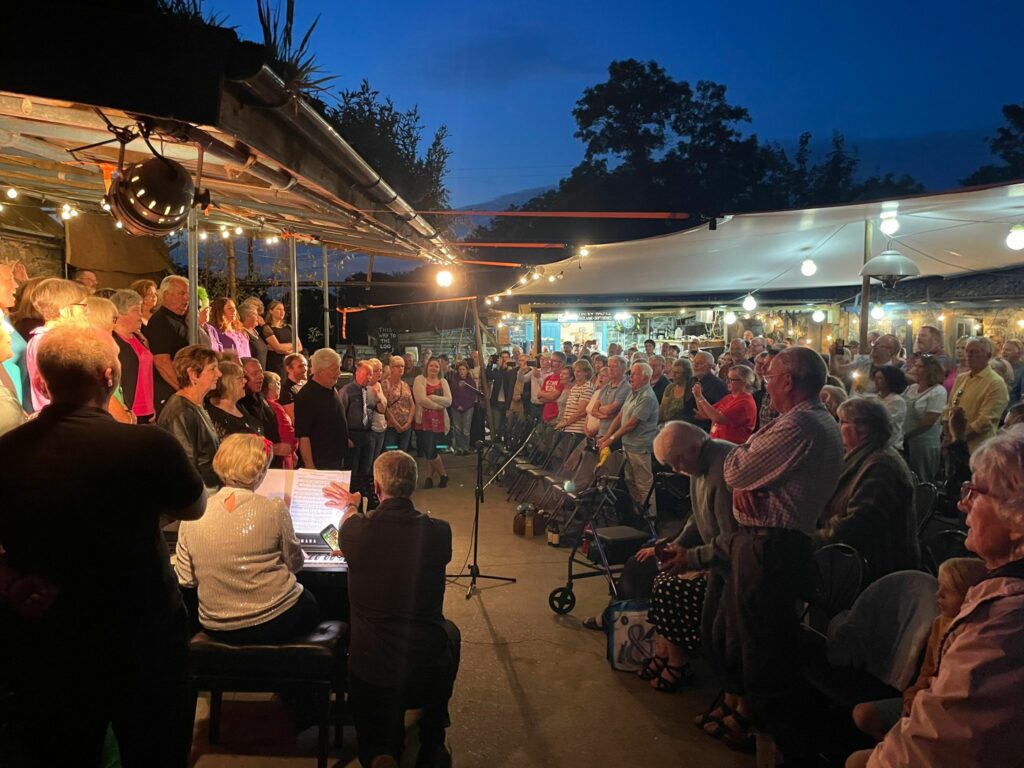We were recently approached by SIBA (Society of Independent Brewers) to feature in their Magazine as a leading Sustainable Brewery in the UK. Emily sat down with Caroline Nodder, editor in chief, and talked about the Sustainability side of our business.
You can have a read of the Q&A here and find out more about why & how we do what we do!

1) How long has Bluestone Brewing Co been in operation and what is the ethos behind
the business?
We started Bluestone Brewing Co in 2013. Brewing in the yard on the Family Farm. The ethos behind the business has always been about creating great beer, responsibly and with as little impact on the planet as possible.
2) Why is reducing the brewery’s carbon footprint so important?
We live in such a beautiful part of the world that we would be crazy to not want to look after the environment around us! We believe that there is a social responsibility, on all businesses, to reduce their footprints for the benefit of everybody. We want to ensure that our business has a
positive impact on the welfare of the next generation. We may be a small business in the grand scheme of things, but we hope that our way of working may influence others and that we can have a big impact on our local community.
3) Do you have someone at the brewery who is dedicated to looking at new sustainable technologies?
We’re a small team of six, so like most other Breweries, we all end up doing a bit of everything! We all tend to pitch in and share ideas of projects that we think could work at the Brewery. Simon, who owns the Brewery, is probably the key person when it comes to leading new projects, he really likes to get stuck in and has a real passion for making positive changes within the business.
4) Bluestone has won a number of awards for its sustainable production methods, tell us a bit more about those awards and the green projects they recognised.
In 2018, we became the first Brewery in the world to gain the Green Key Accreditation; an international award that recognises environmentally sustainable businesses. Although there are lots of accreditations and awards for Brewing and Beer, we wanted
something that would show our customers more about our sustainable efforts. It’s easy for any business to call themselves Eco-Friendly but we thought that it was important to gain an accreditation that properly tested us and considered every aspect of our business. Having the Green Key Accreditations shows our customers and other businesses that we are serious about what we do. We now have something that sets
us apart from other businesses and it’s something to hold ourselves accountable for. Having Green key means that we regularly question our decisions and check them against the Green Key criteria, it means more than just calling ourselves a “Green Business”, we are actually audited against it and so it keeps us on track. We were also awarded the Sustainable Tourism award at Pembrokeshire Tourism Awards. We have a taproom and events venue on site, where we have compost toilets and wildflower roofs, it was great for this part of the business to also be recognised as part of the Sustainable Tourism Award.

5) The most recent sustainable project at Bluestone is to do with using microalgae. How did that come about and what does the project entail?
We will be working with Swansea University’s Faculty of Science and Engineering, Department of Biosciences and Phytoquest Ltd of Aberystwyth, to find a solution to capture CO2 produced naturally by the brewing process and to re-purpose it. The project aims to capture CO2 naturally produced by the action of yeast in the brewing process and to turn this CO2 into valuable biomass. If successful, it is hoped that the solution will be replicable for other small scale CO2 producing companies. Our head brewer, Tom, first heard of something similar at Young Henrys Brewery in Sydney and wondered if we could try to replicate the project here in the UK.
We initially approached Swansea University as we believe that, though we probably have the engineering capabilities and knowledge to fabricate and adapt our equipment to capture CO2 the problems of safe storage, movement and processing that CO2 seemed insurmountable. We were interested to discover that Professor Carole Llewellyn at the Department of Biosciences and her team, have both the experience and expertise to guide us through the process and the research facilities with which to work out the most efficient methods of using the CO2. The project is partially funded by the Welsh Government ERDF SMART Expertise Programme which aims to support collaborations between industry and academic institutions. The idea is to capture all the CO2 that is naturally produced through the process of fermentation and CO2 that is vented during the bottling of carbonated beer. Once captured, it will then be transferred to a process area where it will be repurposed using sunlight and microalgae. This is a technical process which uses microalgae, which are far more efficient than plants and trees at capturing CO2. The biomass produced, will then be processed, and
subsequently presented to Phytoquest Ltd, the third-party member of the collaborating team, who specialise in natural product discovery and development of sustainable ingredients for use in the food, pharmaceutical and cosmetic industries.
6) Is becoming carbon neutral or even negative realistic for a small brewer?
Yes, we believe it is. We are very lucky as we are based on a working farm, it’s easy for us to feed our waste to our animals and we have the land to put in reed bed filtration systems and compost toilets. There are still plenty of small things that other Breweries can do to be more eco-friendly, even when they are based in industrial units and big cities. Simple changes like switching from vacuum pack plastic wrapping to cardboard boxes or ensuring that your merchandise is responsibly sourced and made from eco-friendly materials.
Some decisions may cost the business slightly more, like switching to 100% renewable energy for example, but these decisions should be made with the future in mind. Consumers are increasingly swaying towards companies with sustainable values.
We hope that we might inspire other breweries to look at their practices and make small changes to become more sustainable.
7) Do you think the UK brewing sector as a whole should commit to a CO2 reduction target?
Absolutely. We’ve always found the UK Brewing Sector to be a really friendly environment, with lots of collaboration and people helping each other out. There’s no reason why we can’t all work together to collectively reduce our CO2. It would be great to be part of a sector driving change.

8) How do you balance the investment you make in technologies like this with the return you get?
It’s hard to measure the return of certain investments. Honestly, we don’t really see them as investments that warrant return, we just feel that they’re the right thing to do and it’s part of running a responsible business. A lot of our projects so far have been about re-purposing, community involvement and haven’t cost us significantly. Our biggest investment to date will be the MicroAlgae project with Swansea University and we justify the investment by knowing that we are working towards becoming carbon neutral which is a key aim of our business. Of course, the project will result in good exposure for us and may increase sales, but we don’t see that as the most important reason to invest in a project like this.
9) What has been the best investment you’ve made in sustainability in terms of the positive results it’s had on your business?
In 2018, with support from the Coastal Communities Fund, we installed our own bottling line on site. The bottling line allows to package everything on site; saving money, mileage and time as we will no longer rely on another Brewery to do our bottling for us. We were previously sending our beer in up to Staffordshire Brewery for bottling, a 340 mile round trip – bottling on site dramatically reduces our carbon footprint by cutting out these journeys. We are now able to package exactly how we want to and so we switched from plastic vacuum packaging to cardboard boxes and paper tape. We reuse the boxes wherever we can too, some are still going strong after their fifth or sixth use!
10) Do you think the UK’s small brewers could be doing more to become sustainable?
In general, the UK Brewing Industry is already doing a great job. The majority of smaller brewers are very community focused and conscious of their impact on their local areas. There’s always room for improvement though and if every small brewer made a few little changes, it would probably have a large impact across the industry. Some of the big UK brewers, with big marketing budgets behind them, could really lead the way, encouraging more sustainability within Brewing and set a precedent for other Breweries across the globe.
11) Do you actively promote your business as sustainable to consumers and if so what feedback have you had?
Yes, we do try to communicate our sustainable ethos as much as possible with consumers. It’s hard to get too much onto a beer label so we rely a lot on getting the message across through our marketing and social media. We get great feedback from customers, especially about our packaging. We send our beer out in compostable cardboard moulds and customers have sent us pictures re-using them to plant seeds into!
13) Do you have plans for any more ‘green’ projects in the future?
We’re currently undergoing our impact assessment with B-Corp and hope to become accredited in 2022. The B-Corp assessment is very thorough and looks at every aspect of the business, from staff welfare to supply chain. It’s a step up from our Green Key
accreditation and we hope it will drive us forward to become even more sustainable. We are also looking at the possibility of shredding waste cardboard on site and re-using it as bedding for the animals on the farm. We are also currently composting
brewers grains with woodchip (ratio 1 to 5) with a view to supplying local gardeners with weed free gardening compost.
14) Do you consider your whole supply chain when it comes to sustainability, if so what changes have you made there?
We always try to work with likeminded suppliers. We are far more likely to buy from a producer if they take some of the responsibility for the packaging that they send their product out in. For example, Niche Solutions will take back plastic key kegs as part of their recycling programme and Brewers select allow you to return used malt bags. We feel very strongly that if a company is going to produce a product, covered in plastic, then they have some responsibility to recycle it.
15) Do you think consumers are now actively seeking out businesses that promote and invest in sustainable production?
There’s definitely a change in consumer habits taking place. During the pandemic, it felt like there was a big switch to supporting local and thinking more carefully about your purchases. There is so much discussion around sustainability at the moment and
customers are very aware of the need for urgent change, businesses that don’t act now will be left behind. We have always felt frustrated that there is no national audit for small and large food and drink producers regarding their carbon footprint. It would be good if there was a responsible body that you could chose to be audited by, which would give you some sort of a rating which could then be displayed on the packaging. Similar to the Red Tractor and Farm Assured systems.
16) What is the first thing you’d recommend a small brewery does if it wants to become more sustainable?
A good starting point would be to carry out an assessment of your waste. We find so many uses for our waste products that we are very close to being a “zero waste to landfill” company. Can you offer excess cardboard to a local allotment to use as mulch? Is your beer packaging completely recyclable? Could you switch from Plastic Vacuum Pack to cardboard trays? If you sit down and think about it what you’re using, you might find some creative ideas of how to repurpose it rather than throwing it away.
17) Are there any new technologies you see emerging that might be transformational for brewers in the future?
The Co2/Microalgae project is really exciting for us and something that we hope could be useful for other brewers in the future. There isn’t currently an affordable, easily accessible method of capturing waste co2 for from the brewing process for small, craft brewers. It would be fantastic if our research project results in being able to help other brewers reduce their carbon footprint and as a bi-product produce biomass with a value.
18) Bluestone is a market leader in terms of sustainability, are there any other brewers in the sector you admire for leading the way too?
Brewgooder, Stroud Brewery and Toast Ale are probably the first ones that come to mind. We were part of the Brewgooder Global Gathering Campaign (which sadly didn’t get the exposure it should have because of Covid!) and would love to work with them
again in the future. It’s easy for businesses to claim to be sustainable, but these Breweries are actually doing as they say and are really transparent and clear about their missions.

